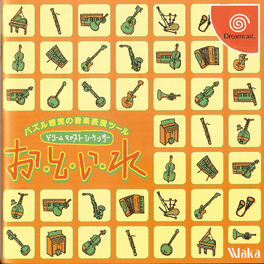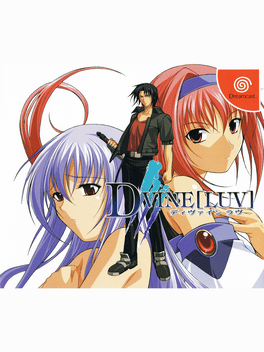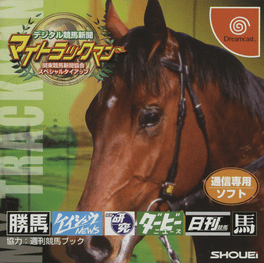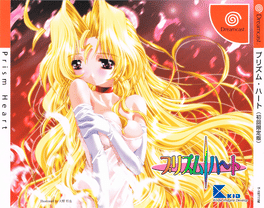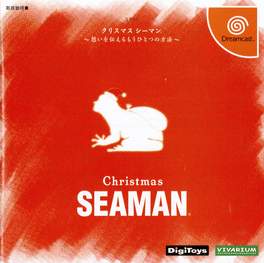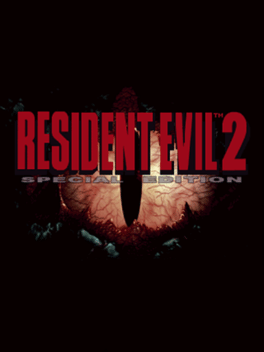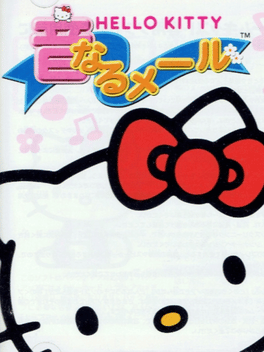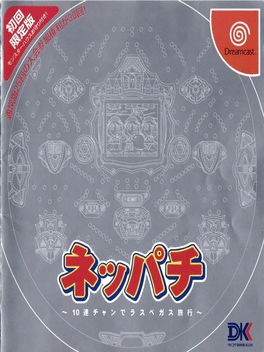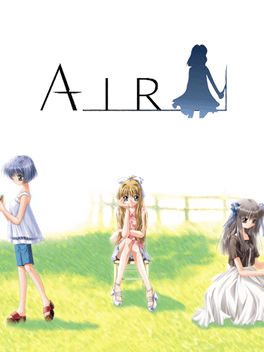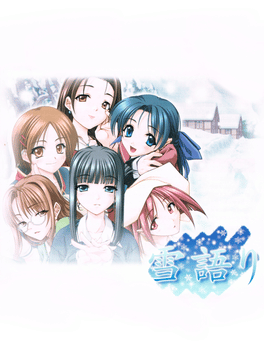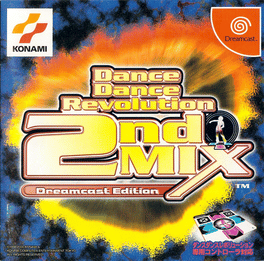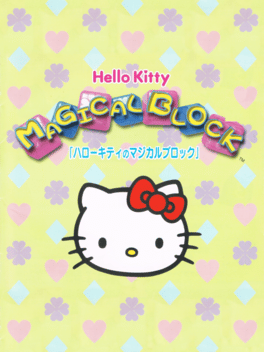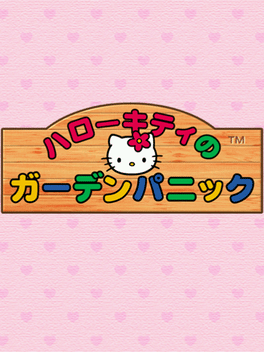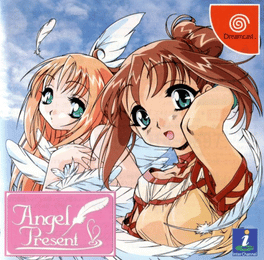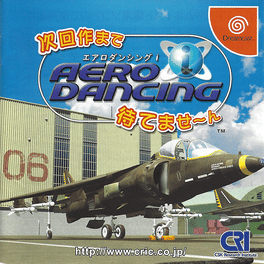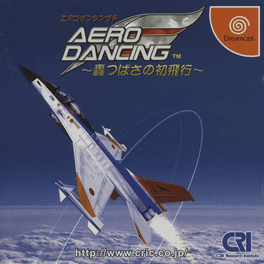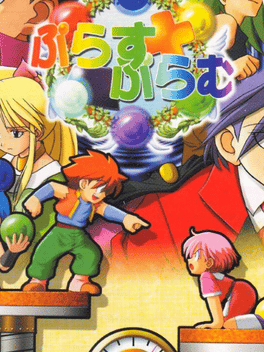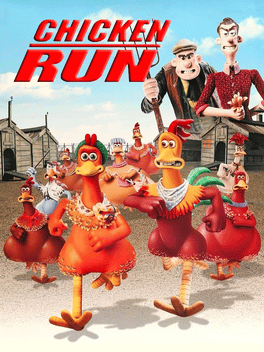Most Popular Dc Games - Page 5
-
O.To.I.Re: Dreamcast Sequencer
1999
O.to.i.Re: Dreamcast Sequencer is a Japan-exclusive Sega Dreamcast music creation game by Waka Manufacturing. It was released only in Japan, and allows the player/user to produce his or her own music tracks via the Dreamcast Controller, Dreamcast Microphone, or Dreamcast MIDI Interface Cable. Additionally, this was the only piece of software released in the Dreamcast's lifespan that supported it's MIDI adapter cable. -
D+Vine[Luv]
2001
D+Vine[Luv]
2001
D+Vine[Luv] (pronounced Divine Love) is a typical J-RPG, using a top-down perspective with a slightly isometric representation, which also utilizes visual novel segments for adventure elements. Unlike the original PC (Windows) version released almost two years earlier, the Dreamcast port does not feature any adult content. -
Digital Keiba Shinbun: My Trackman
1999
A simulation game by Shouei System for the Sega Dreamcast. It simulates an off-track betting station, allowing users who are connected to the Internet to bet on horse races from home. The service lasted a year and a half — Shouei System went bankrupt and shut the service down on October 1, 2000 at 17:00 (JST). The game may also be a standalone horse racing sim, however this is unconfirmed. -
Prism Heart
2001
Prism Heart
2001
PRISM HEART (プリズム・ハート Purizumu Hāto) is a Japanese erotic video game developed by Pajamas Soft and was first released on October 6, 2000. The game was ported to the Dreamcast on November 29, 2001 with the adult content removed by KID. -
Christmas Seaman: Omoi o Tsutaeru Mou Hitotsu no Houhou
1999
A limited-edition demo version of Seaman titled Christmas Seaman was released in Japan on December 16, 1999, and available for only ten days either through the Sega Direct online store or as part of an exclusive red Dreamcast pack-in. The title allowed players to connect to the online servers and exchange Christmas wishes and messages, while a Santa themed Seaman shares some of his trademark "Seaman wisdom". -
Hello Kitty no 'Otonaru' Mail
2000
Hello Kitty no 'Otonaru' Mail is a Japan-only Hello Kitty Dreamcast game. It has online functions that allow users to communicate with friends by sending mail using Hello Kitty characters. -
Sunrise Eiyuutan
1999
Sunrise Eiyuutan
1999
Sunrise Eiyuutan is a Japanese battle RPG developed and published by Sunrise Interactive for the Sega Dreamcast on December 2, 1999. -
Neppachi: 10-renchan de Las Vegas Ryokou
1999
Neppachi: 10 Ren Chande Las Vegas Ryokou is a Miscellaneous game, developed by Falcon and published by Daikoku, which was released in Japan in 1999. -
Air
2001
Air
2001
A Dreamcast port of the Japanese visual novel AIR, which adds voices to all characters minus the protagonist. -
Yukigatari
2002
Yukigatari
2002
Originally released for PC (Windows) platform as hentai visual novel in 2001, this Dreamcast port removes adult content, adds renewed artwork and new scenario events. -
Dance Dance Revolution 2nd Mix: Dreamcast Edition
2000
This is the second rendition of the popular dance simulation. You follow the arrows as you step on the appropriate direction along with the beat. With a wide range of difficulty settings, the game is a challenge for veterans while being easy enough to enjoy for beginners. 2nd mix comes back with some new songs and some new remixes of old favorites. Challenge your friends head on or work together. For an added challenge try doing Double which puts you on both dance pads (provided you have two). -
Hello Kitty Magical Block
2000
Hello Kitty Magical Block is a Japanese exclusive puzzle game based on the Hello Kitty series. -
Hello Kitty no Garden Panic
1999
Hello Kitty no Garden Panic is a Japan exclusive puzzle game based on Hello Kitty. The game was only sold inHello Kitty branded Dreamcast bundles. -
Angel Present
2001
Angel Present
2001
Angel Present takes place in a 2.5D environment with adventure elements in 2 different worlds, with 3d battles. The game mixes these more action-based elements, with static screens and text and CG movies. The story centers around the main protagonist stumbling across a fairy and soon discovering they have magical powers. -
Aero Dancing I: Jikai Saku made Matemasen
2001
Both Aero Dancing F and i received follow-up titles, with Aero Dancing F: Todoroki Tsubasa no Hatsu Hikou (2000) and Aero Dancing i: Jikai Saku Made Matemasen (2001) being released featuring new missions, planes and environments. -
Aero Dancing F: Todoroki Tsubasa no Hatsu Hikou
2000
Both Aero Dancing F and i received follow-up titles, with Aero Dancing F: Todoroki Tsubasa no Hatsu Hikou (2000) and Aero Dancing i: Jikai Saku Made Matemasen (2001) being released featuring new missions, planes and environments. -
Plus Plumb
1999
-
Chicken Run
2000
-
F-1 World Grand Prix for Dreamcast
1999
The 1997 Formula One World Championship, won by Canadian Jacques Villeneuve in dramatic fashion after a final-race collision with Germany's Michael Schumacher, is recreated in this racing simulation. You have the chance to set up the car to perfect the handling for each of the 17 diverse circuits. Wet racing is incorporated, with gradual weather chances, as well as tyre wear requiring pitstops.
